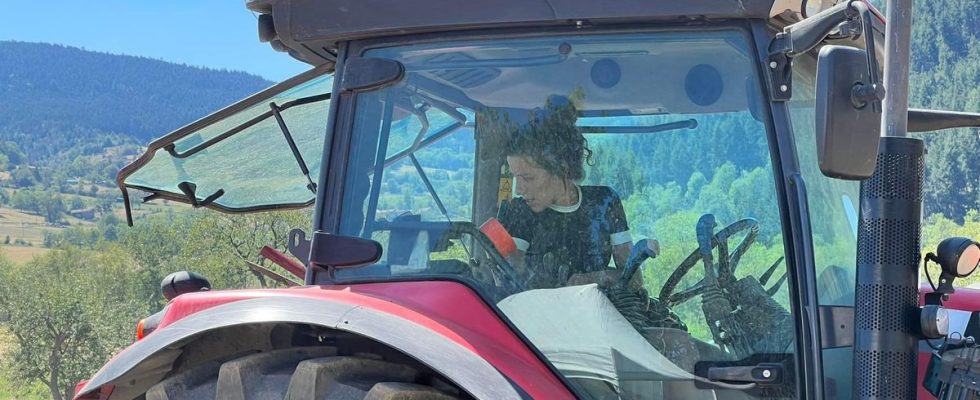“When I did my installation course, I was always brought back to my status as a woman, doubting my abilities. Laura, 29, has been a farmer in the Loire since 2019. Alone. She “refuses” to associate with a man. “I have had my farm for four years now. However, I am never taken seriously. People think that I only take care of the accounts and not the management of a whole farm,” she continues.
In summary, where is the boss? This remark is so generalized among women farmers that it has become the title of a comic released in 2021 by the Peasants in Polar collective. Originally, they simply wanted to tell their daily life in the agricultural environment. Finally, comics reflect the ordinary sexism that they suffer.
From “split parts” to “head of operations” in 40 years
“We wonder how and why women farmers are still invisible when they participate fully in agricultural activities”, launches Valéry Rasplus, sociologist, at the initiative of the online research blog. Agrigenre. “Not once has the word farmer been mentioned in meetings of the agricultural world” in which he participated.
Women nevertheless represent a quarter of farm managers, co-farmers or associates, according to figures from the Ministry of Agriculture. A status that they have only obtained since 1985 and the appearance of the EARL (agricultural exploitation with limited liability). Before, no law recognized the work of women as farmers, considered then as “removed parts”according to the ministry’s website.
“The problem is only moving”
But then, why does agriculture remain “a men’s business”, forty years after the EARL? “Despite obtaining the status, inequalities persist, answers Agathe Demathieu, mechanical engineer, who explores the relationship between gender, technology and agriculture. When we ask women where the boss is, we imply that they cannot be real farmers. Evolution gives the illusion of change, but the problem only moves. »
To “understand the different determinants of this sexism”, she looked at the historical perspective of the sexual division of labor. “In addition to the principle of separation according to gender, there is a principle of hierarchy: the tasks carried out by men are worth more than those by women,” she explains. Technique plays a central role because it requires specific skills. Thus, before its mechanization, the milking of cows was rather considered as a female mission, now it is more made by men. The relationship that women can have with technology is also the legacy of years of sexism rooted in a world designed for men. »
And the inequalities don’t stop at the farm gate. Valéry Rasplus observed that because of her gender, “a female farmer has more difficulty accessing loans and land” than a male farmer.
The agricultural sector “does not escape” gender-based and sexual violence
“Faced with all this discrimination linked to their gender, some abandon their project”, underlines Agathe Demathieu. Others do it even before the end of their studies, where they represent, according to a report from the Senate50% of students in agricultural education.
“I understand why so few continue after high school,” Laura says. They are disgusted. The farmer reports on the “dozens and dozens” of messages she received when she launched the #metooagricole on Instagram last April. “What shocked me the most is that most of the violence takes place on the internship sites,” she continues. But she knew it existed. It was after several private conversations that she decided to create the account, more than five years after the one concerning the world of cinema.
“The agricultural community is no exception,” she exclaims. It is not because there is no sexual violence that speech has taken longer to free itself than elsewhere. In the continuity of making women farmers invisible, we have made this violence invisible. »
Creating power relations between women farmers to combat sexism
With #metooagricole, Laura wants to tell women farmers that they are not alone, that we “must not let it happen anymore”. This hashtag, and the visibility of discrimination in general, is one of the ways to change things, according to Agathe Demathieu.
She also cites the need for research work on the subject as well as the creation of power relations through collectives or unions. “After realizing a study on the place of women in organic farming in 2018, the Fnab now offers various tools such as training for women farmers who wish to progress in the handling of tools, she specifies. This is also the case at the Atelier Paysan cooperative. She concludes: “All these avenues allow you to give yourself strength and credit in front of others and thus show that it is possible to work differently by considering women and their work. »
But the road is long. “On social networks, as soon as a farmer exposes herself to show that she is as competent as a man, we sexualize her because she is in a tank top, notes Laura. It always drifts from the subject, it’s tiring. »

